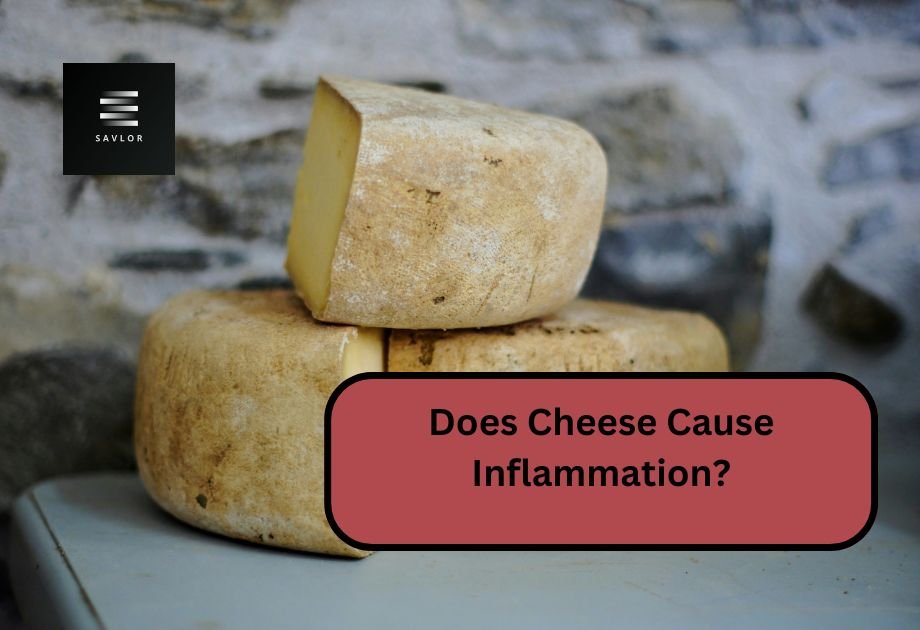Introduction
Cheese is a beloved food worldwide, adding flavor and richness to countless dishes. But some people wonder if cheese might be linked to inflammation. You’ve probably heard mixed opinions—some say it’s bad for you, while others can’t live without it. So, does cheese cause inflammation? Let’s break down the science and hear what dietitians have to say about cheese and its impact on inflammation in your body.
What is Inflammation?
Before we dive into cheese, let’s understand what inflammation is. Inflammation is the body’s natural defense mechanism against injuries or infections. It helps to heal and protect your body. However, chronic inflammation—when your body stays in a prolonged state of inflammation—can be harmful and is linked to several health conditions, including heart disease, arthritis, and even cancer.
Types of Inflammation
There are two main types of inflammation:
- Acute Inflammation: This is short-term and occurs when you get a cut, sprain your ankle, or have an infection. Your body responds by sending white blood cells to the injured area.
- Chronic Inflammation: Unlike acute inflammation, this lasts longer and can result from an unhealthy lifestyle, including poor diet, stress, or lack of exercise. Over time, chronic inflammation can damage your tissues and organs.
The Nutritional Value of Cheese
Cheese is packed with essential nutrients like calcium, protein, and vitamins. It’s a good source of fat and protein, and certain types of cheese, like Parmesan or Swiss, can be rich in probiotics, which support gut health.
Nutrients Found in Cheese:
- Calcium: Vital for bone health.
- Protein: Helps build and repair body tissues.
- Vitamin B12: Supports nerve function and red blood cell formation.
- Fat: Provides energy and supports cell function.
While cheese has many benefits, concerns about its link to inflammation often focus on its fat content and the presence of lactose.
Does Cheese Cause Inflammation?
Cheese and Saturated Fat
One reason cheese has been thought to cause inflammation is its saturated fat content. High levels of saturated fat have been linked to increased inflammation, which may contribute to heart disease and other chronic conditions.
However, recent studies suggest that the saturated fat in cheese may not be as harmful as once thought. Some research shows that dairy products like cheese do not promote inflammation as much as processed meats or sugary foods.
Lactose Intolerance and Inflammation
Lactose intolerance occurs when your body can’t digest lactose, a sugar found in milk and dairy products. For those who are lactose intolerant, eating cheese can lead to digestive issues like bloating, gas, and diarrhea, which can indirectly cause inflammation.
However, many hard cheeses like cheddar, Parmesan, and Swiss contain very little lactose and may not cause these issues for people with lactose intolerance.
Cheese and Gut Health
Certain types of cheese, especially those made with live cultures like blue cheese, cottage cheese, and yogurt-based cheeses, contain probiotics. These beneficial bacteria can help balance your gut microbiome, which plays a key role in regulating inflammation.
Eating probiotic-rich cheeses may actually reduce inflammation by promoting good gut health. On the other hand, heavily processed cheeses with additives and preservatives may have the opposite effect, contributing to inflammation.
Types of Cheese and Their Impact on Inflammation
1. Hard Cheeses (Cheddar, Parmesan)
Hard cheeses are typically lower in lactose and contain healthy fats and proteins. They are less likely to cause inflammation in people who are lactose intolerant or sensitive to dairy.
2. Soft Cheeses (Brie, Camembert)
Soft cheeses tend to have more moisture and slightly higher lactose content, but they also contain beneficial probiotics. These cheeses may have a neutral or even positive impact on inflammation for most people.
3. Processed Cheese (American Cheese, Cheese Spreads)
Processed cheeses often contain additives, preservatives, and lower-quality ingredients. These can trigger inflammation more easily than natural cheeses due to the chemicals and lack of nutrients. It’s best to limit your intake of highly processed cheese products.
4. Blue Cheese
Blue cheese contains probiotics, which may help reduce inflammation by supporting gut health. It’s a great choice for those looking to balance their diet with anti-inflammatory foods.
What Do Dietitians Say?
Moderation is Key
Most dietitians agree that moderation is essential when it comes to cheese consumption. While cheese is rich in nutrients, eating large amounts of high-fat or processed cheese could lead to increased inflammation and other health concerns.
Choose Quality Cheese
Opt for natural, high-quality cheeses over processed varieties. Natural cheeses are less likely to have additives that could contribute to inflammation. Dietitians often recommend cheeses like feta, mozzarella, or goat cheese for those looking to minimize inflammation.
Pair Cheese with Anti-Inflammatory Foods
Dietitians also suggest balancing your cheese intake with anti-inflammatory foods like vegetables, fruits, and whole grains. For instance, pairing cheese with leafy greens or fiber-rich whole grains can reduce the likelihood of inflammation.
Consider Your Individual Sensitivity
Everyone’s body reacts differently to dairy. If you’re sensitive to lactose or dairy in general, cheese might cause inflammation for you. However, those who can digest dairy well may not experience any adverse effects.
Other Foods that Cause Inflammation
1. Processed Meats
Processed meats like bacon, sausage, and hot dogs are high in saturated fats and preservatives, which can increase inflammation.
2. Refined Carbohydrates
White bread, pasta, and sugary cereals can spike your blood sugar and trigger inflammatory responses.
3. Sugar and Sweetened Beverages
Sugary drinks and foods, like soda and candy, are known to promote inflammation.
4. Trans Fats
Found in many fried and fast foods, trans fats are strongly linked to increased inflammation.
5. Excessive Alcohol
Drinking too much alcohol can irritate the digestive system and lead to inflammation.
Foods that Fight Inflammation
1. Leafy Greens
Vegetables like spinach and kale are packed with anti-inflammatory compounds and antioxidants.
2. Fatty Fish
Fish like salmon, tuna, and sardines are rich in omega-3 fatty acids, which help reduce inflammation.
3. Berries
Blueberries, strawberries, and other berries contain antioxidants that help combat inflammation.
4. Nuts
Almonds, walnuts, and other nuts are high in healthy fats and fiber, which support an anti-inflammatory diet.
5. Olive Oil
Extra virgin olive oil is a staple of the Mediterranean diet, which is known for its anti-inflammatory benefits.
Conclusion
So, does cheese cause inflammation? The answer depends on the type of cheese, your individual tolerance to dairy, and how much you consume. While processed cheeses and those high in additives can contribute to inflammation, natural cheeses in moderation may have little to no negative impact. In fact, probiotic-rich cheeses can even promote gut health and reduce inflammation. Ultimately, the key is to enjoy cheese as part of a balanced diet rich in anti-inflammatory foods like vegetables, fruits, and healthy fats.

